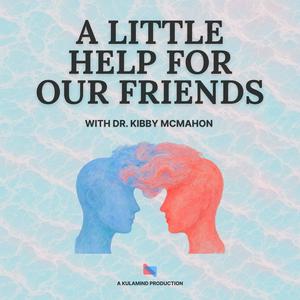This episode describes what complex Post Traumatic Stress disorder (cPTSD) is, how it's diagnosed, and how it's different to similar disorders like PTSD and borderline personality disorder. This episode was inspired by the angry comments on Dr. Kibby's latest reel on spotting emotion dysregulation in borderline personality disorder.
When someone has a history of childhood trauma and they struggle with intense emotions, self-esteem issues, and relationship problems- what disorder do they have? In this episode, Dr. Kibby delves into the criteria for complex PTSD, which is still not an official disorder in the DSM-V. Yet, so many people struggle with symptoms from long, painful histories of trauma that has shaped their entire lives and personalities.
Dr. Kibby also discusses the nuanced differences between Complex PTSD and Borderline Personality Disorder, revealing how trauma shapes self-esteem, relationships, and emotional regulation in surprising ways. If you've ever wondered why these disorders often overlap—and how understanding their distinctions can transform healing—you’ll want to hear this.
Dr. Kibby shares her own experiences with online criticism around trauma representation, sparking a deeper conversation about stigma and bias in mental health. She dives into the hidden intricacies of CPTSD, explaining why it’s often overlooked in the DSM-5 but recognized worldwide, and how prolonged trauma affects the brain’s ability to process memories, dissociate, and regulate emotions.
She also talks about how how trauma, whether overt or subtle, can lead to complex self-protection mechanisms that impact every aspect of life. Then she finishes with listing the best evidence-based treatments, from prolonged exposure to cognitive processing therapy and DBT, tailored for each disorder’s unique challenges.
She emphasizes the power of compassion and personalized treatment over stigma, advocating for a mental health field that treats all disorders with empathy and respect. Why diagnosis isn’t about labels- it's a pathway to personalized healing and recovery.
Resources:
Sarr, R., Quinton, A., Spain, D., & Rumball, F. (2024). A Systematic Review of the Assessment of ICD‐11 Complex Post‐Traumatic Stress Disorder (CPTSD) in Young People and Adults. Clinical psychology & psychotherapy, 31(3), e3012.
Simon, J. J., Spiegler, K., Coulibaly, K., Stopyra, M. A., Friederich, H. C., Gruber, O., & Nikendei, C. (2025). Beyond diagnosis: symptom patterns across complex PTSD and borderline personality disorder. Frontiers in Psychiatry, 16, 1668821.


